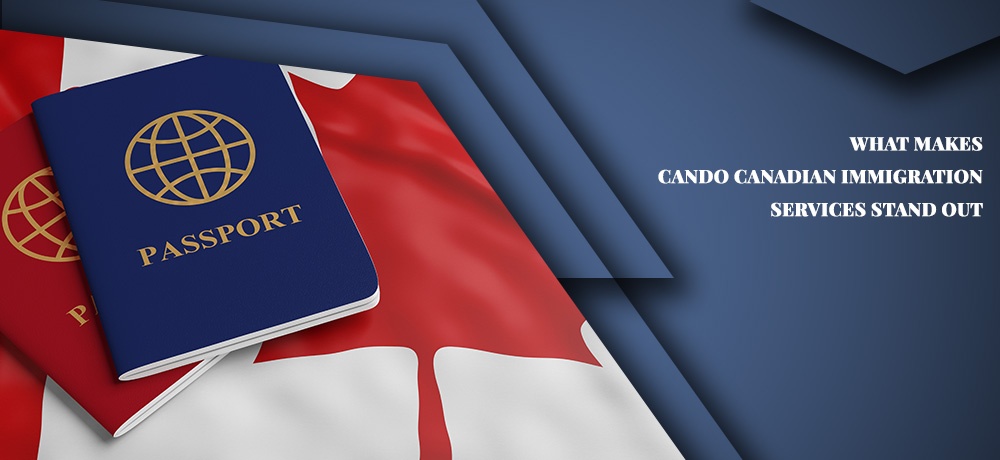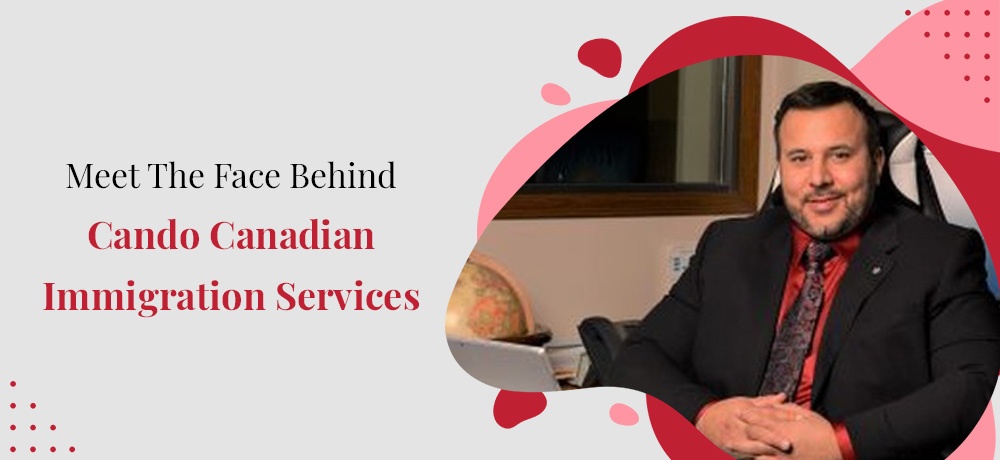Canada is an exceptionally beautiful country with a high quality of life, accessible and affordable healthcare, and good working conditions. In addition to this, Canada embraces diversity and multiculturism, and it has a relatively ‘friendly’ immigration policy. So if you’re planning to live, study, work or travel in Canada, you CANDO it!
However, there are some common mistakes you could fall prey to when preparing to immigrate to Canada. And CanDo Canadian Immigration Services has come across several cases where candidates’ immigration applications simply don’t make the cut or face rejection due to basic errors.
To help you avoid these mistakes, we have put together a list of the most common mistakes people make when immigrating to Canada.
1. Believing that Canada accepts anyone as a permanent resident
Research the skills, experience, and qualifications Canada wants in its immigrants. The global media portrays Canada as a haven for any person who wants to migrate. In reality, while Canada does admit a lot of immigrants each year (with one-fifth of Canada’s population being foreign-born), the immigrants it admits are strategically chosen. Canada wants qualified immigrants who meet federal and provincial needs, fill shortages, or who strengthen the country’s economy.
The immigration priorities regularly change as supply and demand fluctuate. But that doesn’t mean success is outside of your control. There is plenty you can do to improve your chances of being accepted as a Canadian permanent resident. For instance, many programs prioritize young, educated immigrants with relevant skilled work experience, strong French and, or English language skills, and enough money to support themselves and their dependents upon arrival in Canada.
Finally, it’s worth considering that living in Canada temporarily can benefit your prospects for immigration. For entrepreneurs, it’s crucial that you have visited the city in which you intend to open a business, for example. Meanwhile, foreign nationals who hold valid permits like a temporary skilled work permit, study permit, or International Experience Canada open work permit may find it easier to immigrate to Canada than those applying from outside of Canada.
2. Not planning your immigration pathway
Planning your immigration pathway as far in advance as possible sets you up for success. Generally, it’s best to plan your immigration pathway as early as possible. Immigrants who plan early have higher prospects for success and tend to adapt to life better after arriving in Canada.
If you do plan properly, you will know where you want to live, what the climate, economy, and employment opportunities look like in that area. Doing research and planning early gives you time to visit Canada and the regions you may wish to live in before you apply to immigrate. This can help you choose a location you like and where it’s easier for you to advance your career, build a personal network, and generally adapt to life in Canada as quickly as possible. Bear in mind; this may take months or even years.
Additionally, planning your immigration pathway long in advance ensures time is on your side. In this case, it is more likely you will have the information needed, money saved, and documents required to be granted permanent residence in Canada.
3. Not prioritizing your language skills
You should learn to speak, read, listen, and write well in English, French, or both languages. Many immigrants underestimate the importance of having strong language skills in either or both of Canada’s official languages. While Canada welcomes immigrants and embraces diversity, poor language skills will hold you back at work and in your personal life.
Professionally, strong language skills will help you make a strong impression when you apply for a job. From there, speaking, reading, writing, and listening well in English or French (or both) can make it easier for you to impress your boss and advance in your career. Conversely, if you don’t have strong language skills, your job prospects are limited.
Personally, if you can’t speak or listen well to English or French, it will be more difficult for you to make friends and meet people. Your day-to-day life will be more difficult too. Getting the bus, seeing a movie, attending a fitness class, and going to the grocery store are more challenging if you do not have strong English or French skills.
Finally, French language skills are considered valuable by the IRCC. Strong French proficiency opens more immigration pathways and gets you more points for Express Entry to Canada. If you speak some French, it can be worthwhile working to improve your French language skills to immigrate to Canada.
4. Assuming that the immigration process is simple and straightforward
Take time to understand how complex the immigration process is before applying.
Many hopeful immigrants assume that applying to immigrate to Canada is simple and straightforward. This is not often the case.
The application guides and checklists, for instance, need to be carefully read in conjunction with all the pages related to that application on the IRCC website. There are hundreds of pages on the IRCC website containing details about applying for PR, and many of these pages contain fragments of the information required. Often, you need to click through multiple pages, some of which aren’t obvious, to gather the information you need to submit a complete profile.
Additionally, there are often documents or letters that aren’t listed on the document checklist that you can attach to your application to help it be processed quickly and easily. It is only through experience that you can learn about how small changes to your application can make the process run more smoothly.
Finally, even small mistakes on your application can cause it to be refused or canceled for being incomplete. This can cause significant delays in the processing of your application and may make future applications more difficult.
Look for professional help if you are not sure what to do.
5. Choosing an immigration consultant based on price
Make sure to hire an immigration consultant based on their experience, not their price. Choosing an immigration consultant will be one of the most important decisions you make. It’s important to remember that the cheapest consultant is not usually the most experienced or the most reliable. We see many cheap consultants who engage in mass processing without considering the time required to provide tailored advice and detailed attention to their clients. Worse still, we sometimes see scam artists posing as immigration consultants and stealing money from hopeful immigrants.
When choosing your immigration consultant, you should first check to see whether they are listed as a registered migration agent. Once you have confirmed this, you should pay careful attention to the company’s Google reviews, social media presence, and website. Even better, speak with the consultant to get a feel for whether they’re someone you’d like to work with throughout this long and daunting process.
To avoid these and other mistakes, reach out to the experts at CanDo Canadian Immigration Services. We are a team of highly experienced immigration professionals with all the expertise you need throughout the immigration process. You can verify our President and CEO Jamie Dowla’s status as a Registered Migration Consultant here; his registration number is R507233.
We serve clients across Kelowna, Kamloops, Salmon Arm, Lake Country, Vernon, Penticton, Merritt, Prince George, Vancouver, Burnaby, Richmond, Victoria, Toronto, Winnipeg, Edmonton, Calgary, Regina, Saskatoon, Ottawa, Mississauga, Quebec, Montreal, Charlottetown, Fredericton, Halifax, St. John’s and the surrounding areas.
We also serve across Brazil, Chile, Mexico, Hong Kong, Dubai, Philippines, India, UAE, Jamaica, Guatemala, Colombia, Vietnam, Nigeria, France, Iran, Korea, and the United States.
For a complete list of our services, please click here. If you have any questions about Canadian immigration, we’d love to hear from you. Please contact us here.




